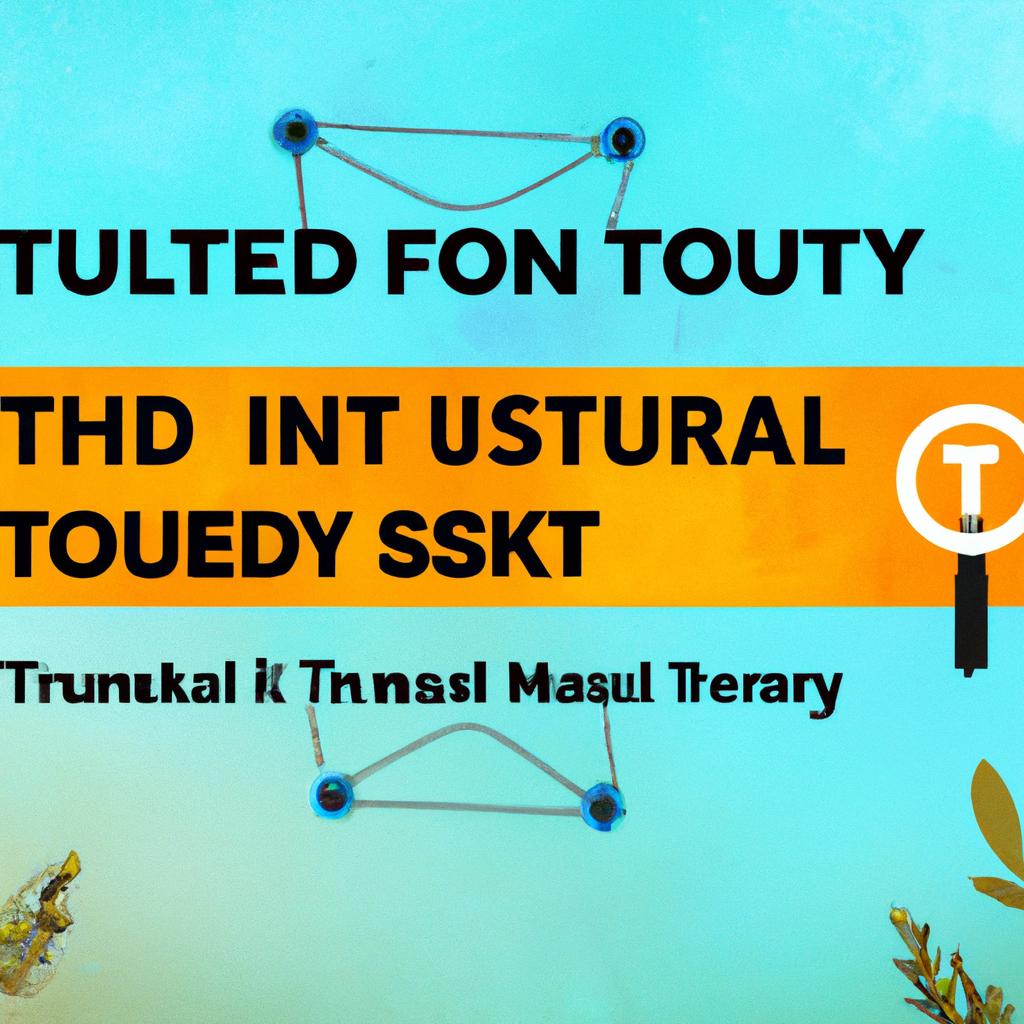In today’s uncertain economic climate, trust funds serve as a symbol of financial certainty and reassurance. But what is the true essence of these often misunderstood financial management instruments? Let’s embark on an exploration of trust funds, demystifying their role and importance in personal finance.
Decoding the Essence of Trust Funds
Trust funds are a potent financial instrument designed to safeguard and manage assets for future beneficiaries. Essentially, a trust fund is a legal structure established to hold assets on behalf of a specified beneficiary. The individual who sets up the trust fund, referred to as the grantor, transfers assets into the trust, which is then supervised by a trustee. The trustee’s role is to manage the assets in line with the conditions outlined in the trust agreement.
One of the defining characteristics of trust funds is their adaptability. They can be tailored in numerous ways to fulfill different objectives, such as catering to the financial needs of offspring or grandchildren, backing a philanthropic endeavor, or shielding assets from potential creditors. Trust funds can also help bypass probate, facilitating a seamless and private transfer of assets to beneficiaries without the need for court involvement.
It’s crucial to note that trust funds aren’t exclusive to the affluent. While they are often linked with wealthy families, trust funds can be advantageous for individuals across all income brackets. By collaborating with a proficient estate planning attorney, anyone can explore the potential of setting up a trust fund to safeguard their financial legacy and provide for their loved ones.
Distinctive Attributes of Trust Funds
Trust funds are a formidable financial instrument that can be utilized to safeguard and manage assets for future generations. They offer several distinctive attributes that make them a favored option for individuals and families seeking to secure their financial future.
Some of these attributes include:
- Asset Safeguarding: Trust funds offer a degree of protection for assets, ensuring they are managed and allocated according to the trust creator’s wishes.
- Distribution Control: Trust funds enable the creator to establish specific guidelines for how and when assets are allocated to beneficiaries, offering enhanced control over wealth management.
- Tax Advantages: Trust funds provide potential tax benefits, facilitating the reduction of estate taxes and potential income tax benefits for both the trust creator and beneficiaries.
- Professional Supervision: Trust funds are typically overseen by professional trustees who possess the expertise and experience to ensure assets are managed effectively and in line with the trust’s conditions.
In summary, trust funds are a versatile financial planning instrument that can offer a variety of benefits, including asset protection, tax benefits, and control over wealth distribution.
Advantages of Establishing a Trust Fund
Establishing a trust fund can provide numerous benefits to both the trust creator and beneficiaries. A significant advantage is the ability to avoid probate, which can be a protracted and expensive process. By placing assets in a trust, they can be allocated to beneficiaries swiftly and efficiently, without the need for court intervention.
Another advantage of a trust fund is the ability to maintain control over how assets are distributed. The trust creator can specify when and how beneficiaries will receive their inheritance, ensuring that it is used responsibly. Additionally, trusts can offer protection from creditors and ensure that assets remain within the family for future generations.
Moreover, trust funds can offer tax benefits, allowing assets to grow and be passed on to beneficiaries with minimal tax implications. This can help preserve wealth and provide financial security for loved ones. Overall, setting up a trust fund can be a valuable instrument for estate planning and wealth preservation.
Effective Strategies for Managing a Trust Fund
When it comes to managing a trust fund, there are several effective strategies that can help ensure its success and longevity. One crucial strategy is to diversify the investments within the trust to minimize risk and maximize growth potential. This involves distributing the trust’s assets across different asset classes such as stocks, bonds, real estate, and cash equivalents.
Another vital strategy is to regularly review and update the trust’s investment strategy to align with the goals and risk tolerance of the beneficiaries. This may involve consulting with financial advisors or investment professionals to ensure that the trust’s assets are being managed effectively.
Additionally, it’s crucial to keep detailed records of all transactions and communications related to the trust fund. This includes maintaining accurate accounting records, documenting any changes to the trust’s terms, and keeping beneficiaries informed about the trust’s performance and activities.
By adhering to these effective strategies and staying actively involved in the management of the trust fund, trustees can help safeguard the assets and ensure that the trust fulfills its intended purpose for future generations.
Conclusion
In conclusion, understanding the essence of a trust fund can provide insight into the world of financial planning and security. Whether you inherit a trust fund or create one yourself, the importance of trust in managing and growing your wealth cannot be underestimated. So, the next time you hear the term trust fund, remember that it represents not just financial assets, but a promise of stability and security for the future. Trust fund – it’s more than just money, it’s peace of mind.

Unlocking the Mystery: What Does ‘Trust Fund’ Really Mean?
When you hear the term ‘trust fund,’ what comes to mind? Perhaps you envision wealthy individuals living off inherited money, or maybe you think of it as a mysterious financial concept reserved for the elite. In reality, trust funds are not as enigmatic as they may seem. In this article, we will delve into the world of trust funds and uncover the truth behind this financial tool.
Understanding Trust Funds
At its core, a trust fund is a legal entity that holds assets on behalf of one party for the benefit of another. These assets can include cash, stocks, bonds, real estate, and more. Trust funds are typically set up to provide financial security and support for beneficiaries, who can be individuals, families, or charitable organizations.
There are many different types of trust funds, each with its own set of rules and purposes. Some common types of trust funds include:
- Revocable Trust: Can be modified or revoked by the creator during their lifetime.
- Irrevocable Trust: Cannot be modified or revoked by the creator once established.
- Charitable Trust: Created to support charitable causes or organizations.
- Spendthrift Trust: Provides asset protection for beneficiaries who may be irresponsible with money.
Benefits of Trust Funds
There are several benefits to setting up a trust fund, both for the creator and the beneficiaries. Some of the key advantages include:
- Asset Protection: Trust funds can protect assets from creditors or legal claims.
- Control Over Distribution: The creator can specify how and when assets are distributed to beneficiaries.
- Tax Benefits: Trust funds can offer tax advantages, such as reducing estate tax liability.
- Privacy: Trust funds are private arrangements and are not subject to probate, providing confidentiality for the parties involved.
Practical Tips for Setting Up a Trust Fund
If you are considering setting up a trust fund, here are some practical tips to keep in mind:
- Define Your Objectives: Clearly outline your goals and intentions for the trust fund to ensure it aligns with your wishes.
- Choose the Right Trustee: Select a trustee who is trustworthy, reliable, and capable of managing the assets effectively.
- Create a Comprehensive Estate Plan: A trust fund should be part of a broader estate plan that outlines how your assets will be managed and distributed.
- Review and Update Regularly: It is important to review and update your trust fund periodically to ensure it continues to meet your needs and objectives.
Case Study: The Rockefeller Family Trust
One of the most famous trust funds in the world is the Rockefeller Family Trust. Established by oil tycoon John D. Rockefeller in the late 19th century, this trust fund has provided financial security for multiple generations of the Rockefeller family.
The Rockefeller Family Trust is a prime example of how a well-structured trust fund can preserve wealth and support future generations for years to come.
Unlocking the Mystery
In conclusion, trust funds are a valuable financial tool that can provide security, control, and tax benefits for individuals and families. By understanding the basics of trust funds and following best practices for setting them up, you can unlock the mystery behind this concept and use it to achieve your financial goals.


